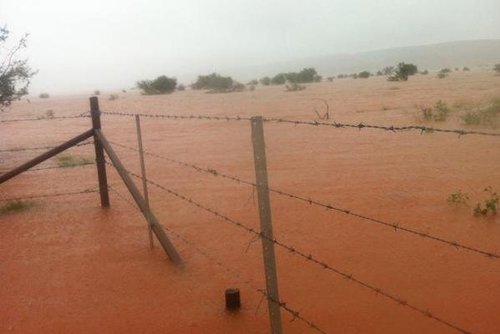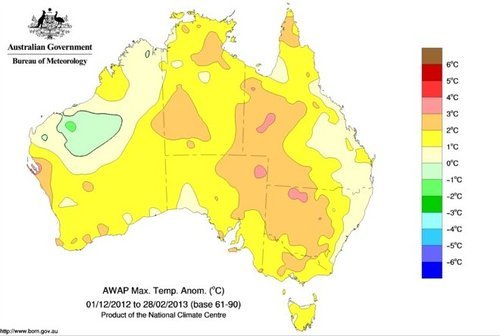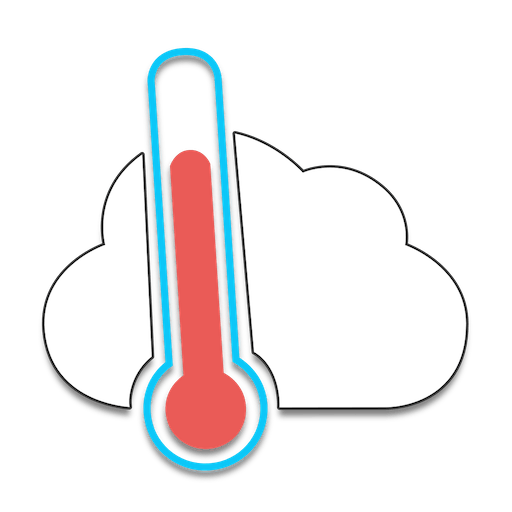Strong Cyclone Affects Australia, Temperature Records Tallied
This past week a cyclone, Rusty, formed off the coast of north-western Australia and quickly spun into a strong cyclone by Australian standards. The cyclone made landfall as category one by Saffir Simpson Scale standards, (rated category 3 by Australian Bureau of Meterology) and even though it brought hurricane force winds, it affected an area of Australia that is sparsely populated. This meant that not much damage was caused by Rusty and only some overland flooding was reported as well as about a hundred houses without power. As Rusty moved inland, heavy rains and high wind gusts were the main concerns; over 450mm of rain fell and gusts of 150km/h were experienced around and south of the area where Rusty made landfall. Rusty’s quick strengthening off the north-western was aided by unusually warm waters – near 31°C and only about ten knots of shear present at the time.

This week the Australian Bureau of Meteorology also announced that the warmest summer on record (records since 1910) occurred this past summer. Australia’s average temperature surpassed the normal by 1.1°C and 95% of the country had above average temperatures this summer. Birdsville, Australia which typically has an average high temperature between 35°C and 38°C during summer had 31 consecutive days above 40°C. It has truly been an impressive summer 2012-2013 temperature-wise for Australia!

In other news, another significant blizzard went through the Southern US Plains bringing more short-term drought relief to the area. Some areas in north-western Oklahoma and the Texas Panhandle received over 35cm of snow. Blizzard conditions were in place as strong winds and heavy snow fell along the deformation zone of the low pressure system. Almost all roads in the Texas Panhandle were impassable because of large snow drifts, residents were urged to stay home. Weather in the Southern Plains will be fairly calm this weekend and at the start of next week; no significant precipitation accumulation is expected.
